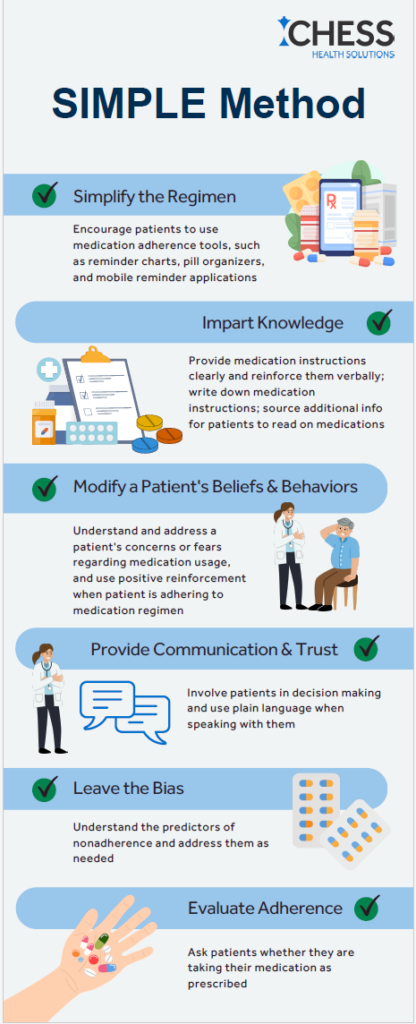
What is Hypertension?
High blood pressure costs the nation about $131 to $198 billion dollars each year. Nearly half of adults in the U.S. have high blood pressure or are taking medication to manage high blood pressure. That said, only 51% report following their health care professional’s advice on medication.
Controlling high blood pressure is vital in preventing heart attacks, stroke, and kidney disease. Lowering your blood pressure is important in reducing the risk of developing other serious, life-threatening conditions. While there is no cure, providers can aid patients in managing their high blood pressure by encouraging a healthier lifestyle and, if necessary, prescribing medications.
Medication Adherence
Medication adherence is critical to controlling chronic conditions. However, patients often become non-adherent for chronic conditions, like hypertension, where they may not experience unpleasant symptoms when not strictly following their medication regimen. In addition to lack of symptoms, other reasons for non-adherence include cost and access, knowledge of the illness and/or medication, medication side effects, and not following the prescribed timing of medication administration.
When nonadherence is the case, healthcare professionals must discover the root cause behind this inaction. Clinicians need to understand a patients’ barrier to adherence and build trust. This will help identify and improve the patient’s adherence to their medication.
Medication Adherence for Hypertension (MAH)
Medication adherence quality measures are included in Part D of Medicare Advantage (MA) quality programs. These measures are triple weighted. This means that they contribute more heavily to STAR ratings (the CMS calculation of quality of care and measurements of customer satisfaction) than other quality measures. Eligibility and performance are based on prescription claims processed at the pharmacy under the Part D benefit.
| Plan Affected | Quality Program Affected | Collection & Reporting Method |
| Medicare | CMS Star Ratings | Part D Prescription Claims: Pharmacy Data |
Medication adherence for Hypertension (MAH) is defined as:
The following classes of Hypertension medications are included in this measure:
- Angiotensin II receptor blockers (ARBs)
- Angiotensin-converting enzyme (ACE) inhibitors
- Direct renin inhibitors
Exclusions apply, so complete and accurate documentation and coding is required for reporting purposes. Exclusions include:
- Members in hospice or using hospice services
- End Stage Renal Disease
- Dialysis
- One or more prescription claim for sacubitril/valsartan (Entresto®)
Improving Medication Adherence
Consider following the SIMPLE method to help improve medication adherence:
Simplify the Regimen
Impart Knowledge
Modify Patient’s Beliefs & Behaviors
Provide Communication & Trust
Leave the Bias
Evaluate Adherence

Download the SIMPLE Method Infographic Here
About the Author


